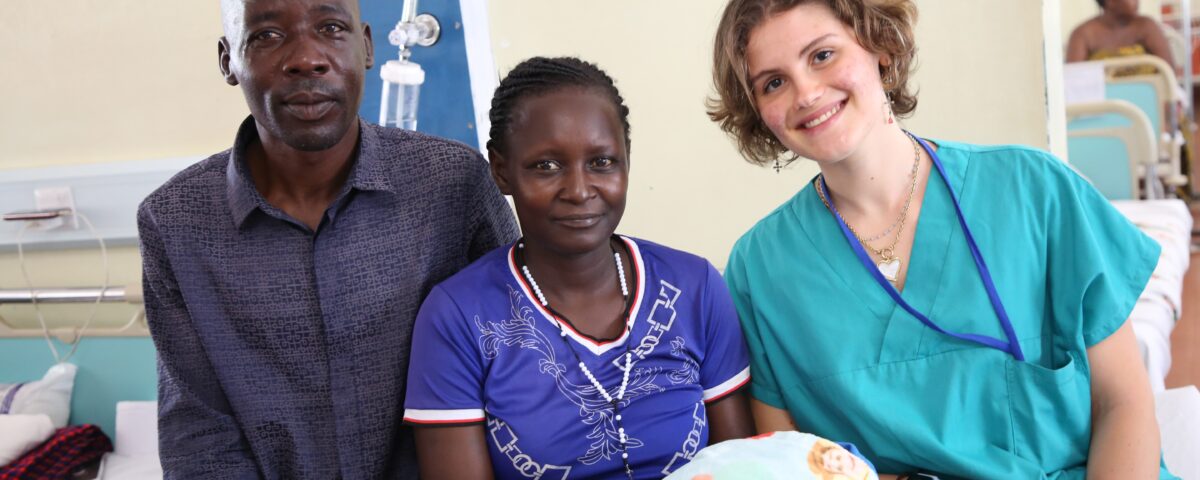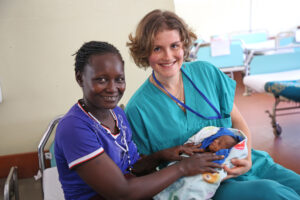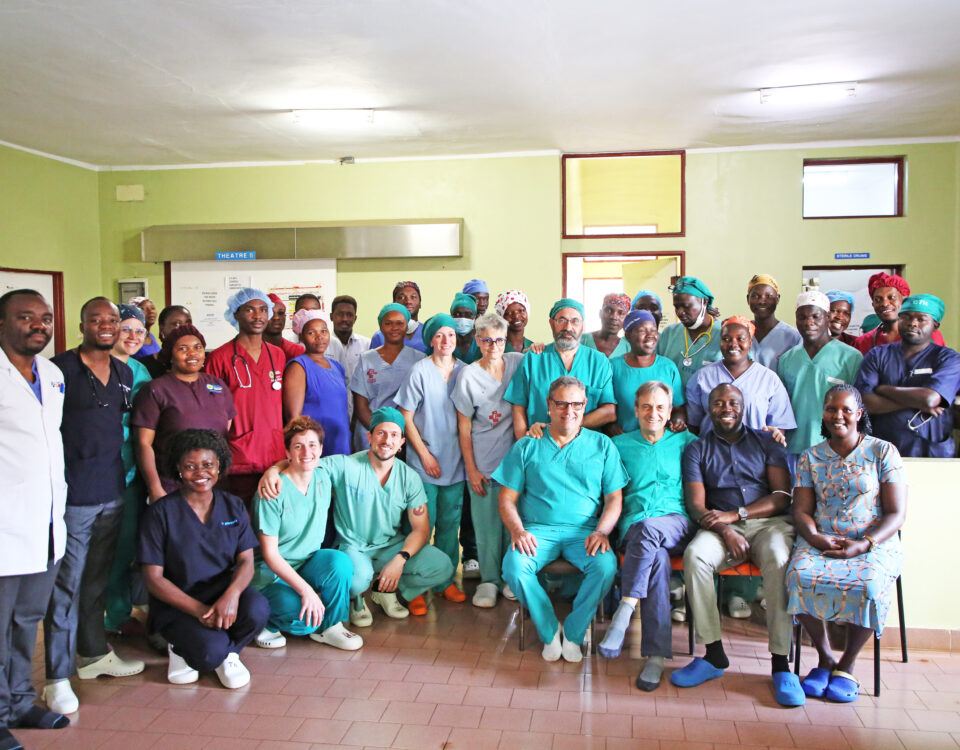Otim and his wife Adong, from Alito Sub-county in Kole District, have been married for years and are blessed with six children, the eldest, a girl of sixteen. For a long time, their pregnancies had been smooth and uneventful, until tragedy struck with their fourth and fifth. Yet through it all, they remained steadfast; working, praying, and hoping together.
“Two years ago, our fourth child passed on in the fourth month while still in the womb. We all thought the baby was okay until the sixth month, when we became concerned that the baby wasn’t kicking anymore. We went to Lalogi Health Centre IV, where a scan showed that the baby had died two months earlier. They removed her, and we buried her. The following year, we lost yet another pregnancy in the fifth month,” recalls Mr. Otim Walter Mike.
Having a big family, they say, means never walking alone. There’s always someone to laugh with, to lean on, and to love. But their next pregnancy, the sixth, would test every ounce of faith and show why no pregnant woman should ever be left alone.
It began when Adong decided to travel to Acet, a village about 72 kilometers from Lira, to weed their family garden. She was eight months pregnant but determined to help. She boarded a boda boda and made the long journey with just her daughter. After reaching safely, she walked from garden to garden, inspecting where she would start work the next day.
That evening, tired but cheerful, she called her husband to say she had arrived well and planned to begin weeding in the morning. But at around 8 p.m., she felt a sharp headache, so severe that she had to lie down. She informed her husband, who could only comfort her from afar: “You will be fine.”
At 2 a.m., their daughter woke up to find her mother convulsing violently. Lost, scared, and far too young to face it alone, she reached for the only person she trusted, her dad, but at that time, he, too, could not do much to help. “I felt helpless,” Otim remembers. “I wanted to cry but couldn’t, because of my daughter. I wanted to help, but I had no transport, and I couldn’t leave the other children behind. I told her to get neighbors to help, and I just prayed.”
By 3 a.m., unable to wait any longer, he had to leave the children with a neighbor, borrowed a motorcycle, and began the long, dark ride to Acet. When he arrived around 5 a.m., he found his daughter exhausted and alone; his wife was lying motionless on the floor. “I thought she was gone,” he said softly. “Then she started convulsing again, worse than before.”
He rushed into the village and found a man willing to ride with them to Lalogi Health Centre IV, holding Adong upright on the motorcycle as they rode. The medical team there immediately referred her to St. Mary’s Hospital Lacor because of her critical condition.
By noon, Adong was on life support at Lacor hospital, her body was covered with tubes and lines. “I sat down on the floor at the reception,” Otim said. “They said they needed blood, but there was none that matched her type, O+. Mine was A-. I felt completely helpless and left it all to God and the doctors.”
Moments later, he was asked to sign consent forms for an emergency operation because the doctors had detected that the baby was still alive. “I signed immediately,” he said. “But one question lingered in my heart: had they found blood?”
Hours later, he received the news that changed everything: both mother and child had survived. “My friend,” he said with a smile, “I live by the saying of Lacor hospital being my miracle center. I would have lost both of them if not for this hospital.”
Behind that miracle, however, was a powerful act of kindness. When doctors realized Adong’s blood type was unavailable, a message was sent across WhatsApp groups asking for O+ or O- donors. Two Italian medical students at Lacor hospital, Chiara Aldè and Francesca, saw the message and rushed to donate. For Chiara, it was her first-ever blood donation. “It feels fulfilling to know I helped save a mother and her baby,” she said.
Dr. Christina, who informed us of Adong’s case, later explained that she suffered from eclampsia, a life-threatening condition in which high blood pressure during pregnancy causes convulsions, sometimes followed by coma, endangering both mother and child.
Eclampsia, and its warning stage, pre-eclampsia, often come without signs. They don’t knock, they crash in. And when they do, every minute matters.
Across Uganda, awareness about pre-eclampsia in rural communities remains low. But stories like Adong’s are a reminder that a simple conversation, a shared story, or a timely hospital visit can save lives.



